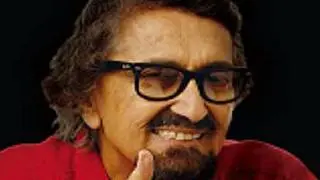He has lived in the US for close to three decades and has written more than half a dozen books in English, but author Amitava Kumar remains a proud Bihari who is now out with the biography of Patna titled A Matter of Rats (Aleph, Rs 295). The professor of English at Vassar College, New York, tellsNandini Nairabout growing up without books, why Patna is not different from New York and the writing that makes him nauseous.
Why do you admire rats?
I am being slightly mischievous, of course. I felt that if I started with rats or with what a senior policeman said about rats that had gotten drunk on the confiscated liquor, people would immediately see a Patna story there. What I wanted to do was exploit that stereotype and turn it on its head and say something different about rats – how highly sociable, inventive, determined they are. And, finally, I wanted to subvert that aesthetic and say ‘I am the rat’. I am the one who abandoned their old parents.
How would you compare a New York rat with a Patna rat?
Good question. They are not as different as people might assume. They might speak in different accents but they speak the same language.
What does that mean?
Soch raha hu. I like the question because one must recognise that places are not as different as one might imagine. Patna and New York are connected, partly because you can find rats in both places, partly because, I’m speaking as a writer, the way people have written about New York is not that different from how people have written about Patna. How people write about a place, might actually be similar and, therefore, places might be similar. So I’m using your question about New York rats and Patna rats to say how places are connected. How people and places are similar. In this book, I’ve tried to write like I mention in the Author’s Note about success, failure, love, death. And that is what concerns people in New York too.
You mention that you started writing about Patna in Brooklyn. What was the first Patna story that came to you?
I’d started writing a book Bombay, London, New York and I thought it would be about the literature written in these cities by Indian migrants. Then one morning, sitting in a room that wasn’t my own, I suddenly started writing about how when my maternal grandmother died, the women of the family, tore sheets of paper, rubbed ghee on the soles of her feet and then there were these footprints walking into eternity. No one read much in the house. I was writing a book about reading, how most of my uncles worked in prison bureaucracy and the writings of my cousins was largely writing up dreamy surnames like Anil Singh Akela. They had nothing to write about. The world had not opened up for them.
You write that portraying the downtrodden is a form of narcissism, in one sense. So how can one write about the poor and not be narcissistic?
The reason I feel like puking when I read some of the reports from India, written by people with good hearts, is because they seem to believe that if they write with great sensitivity, if they just describe the suffering everything will be all right. But it is never all right. Will never be all right. If I were not so filled with self-love because I was so ******* sensitive about the dying poor, then I would notice that I was actually part of the problem. And that my sensitivity was not going to do a thing for them.
What is one lesson you give your students in your English class?
On the very first day of class, I tell them you have to write every day and walk every day. That is the simple mantra. Have modest goals. Don’t be extraordinarily ambitious, write 250 words a day.
What is your mantra for your journalism students?
I knew of an editor in a Philadelphia paper who was blind. When a reporter brought a story, the blind man would place the story on table, and he would say, ‘Make me see, make me see’. So, I always shut my eyes and say to them, ‘Make me see. Make me see’.







Comments
Comments have to be in English, and in full sentences. They cannot be abusive or personal. Please abide by our community guidelines for posting your comments.
We have migrated to a new commenting platform. If you are already a registered user of TheHindu Businessline and logged in, you may continue to engage with our articles. If you do not have an account please register and login to post comments. Users can access their older comments by logging into their accounts on Vuukle.